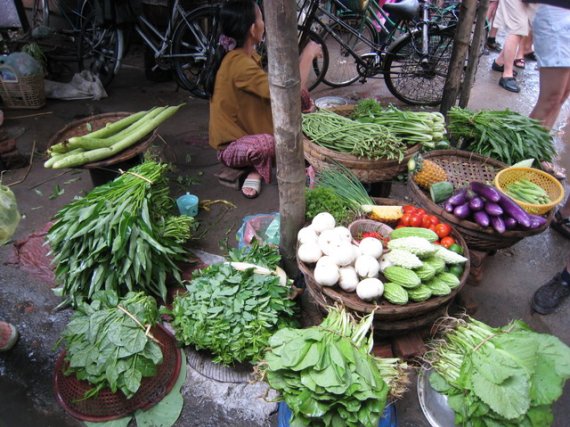Farming in northern Vietnam is still traditional: rice in summer and vegetables in winter. And most farmers have less than 0.5 hectares of land. To grow rice, the land must be flooded and that compacts the soil. This diminishes the likelihood of a good yield in the next vegetable rotation. This prompted Pham Huong to study whether permanent vegetable cultivation would improve farmers’ incomes in the Red River Delta.
Using a cultivation model known as PermVeg, she was able to establish how the cultivation of vegetables could be made profitable. Assuming local prices, it was evident that vegetable crops do not always bring in more money, but if she worked with the wholesale prices paid for vegetables in the city (Hanoi), then in most cases the permanent production of vegetables was the more profitable option. Winter melons are a particularly lucrative crop, says Huong. More so than onions, cabbage or cucumber. To be sure, the market gardener must be able to provide sufficient workers, because vegetables are a more labour-intensive crop than rice. Vietnam exports rice but at certain times of year vegetables are in short supply.
Pham Thi Thu Huong will gain her PhD on 8 April. Her supervisor is Paul Struik, Professor of Crop Physiology.

